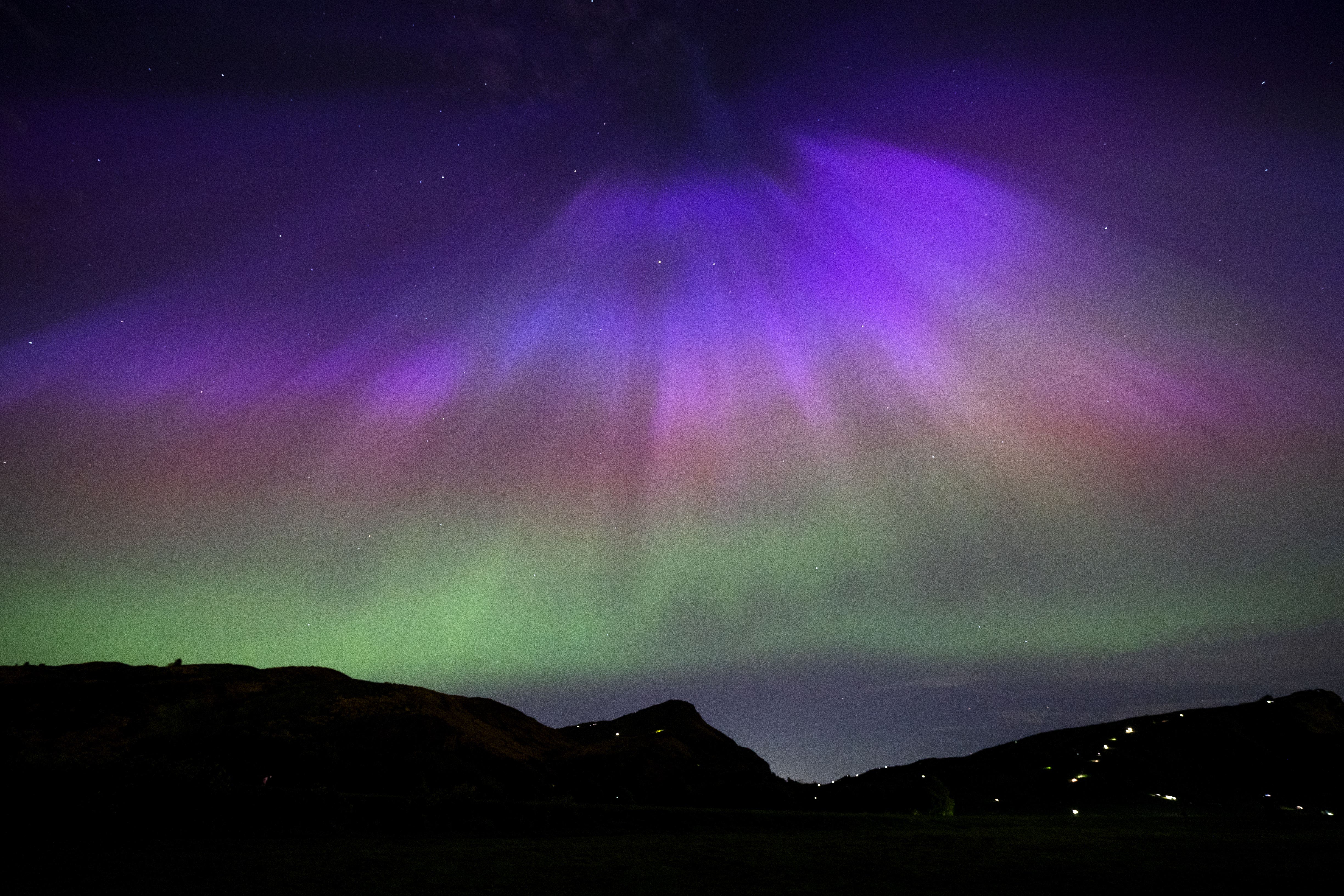
The pink and green strobes of the northern lights could return to UK skies soon, meteorologists have said.
The rare phenomenon could be seen throughout the UK and as far south as France last Friday and Saturday night following a severe solar storm.
Breathtaking pictures displaying the colourful bands of light, technically known as the aurora borealis, were taken from across the country including Essex, Suffolk, Whitley Bay and Liverpool.
For those who unfortunately missed the rare display, there is a chance they could see the lights from the comfort of their own homes in the future.

The latest solar storm activity follows a period of flares and mass ejections of coronal plasma that threatened to disrupt power and communications on Earth and in orbit.
Aurora displays occur when charged particles collide with gases in the Earth’s atmosphere around the magnetic poles.
Met Office space weather expert Krista Hammond said the sunspot region will rotate back towards Earth in 10 to 12 days’ time, paving the way for further geomagnetic storms and displays of the northern lights.
“The sunspot region will be coming back round onto the Earth facing side of the sun,” she said.
There may even be some smaller mass ejections on their way to Earth in the coming days with the potential to create more beautiful displays, Ms Hammond said.

“There are a couple of mass ejections on their way to Earth. They’re a lot less powerful than what we saw last weekend, but they could bring aurora displays across predominantly northern parts of the UK, such as Scotland, Northern Ireland, north of England.
“Just because we’re not seeing aurora across the whole of the UK, it doesn’t mean that we’re not going to see it in some areas,” she said.
For a large display to be visible, activity must happen at night, and when there are clear skies, she added.
The sun is currently in the most active period of its 11-year cycle and Ms Hammond said the lights could be seen more frequently in years to come.

She told BBC Radio 4’s Today programme: “What we saw last weekend was quite a unique situation. We had multiple eruptions of plasma from the sun, which also caught up with each other as [they] arrived at Earth. And then, when that interacted with the Earth’s upper atmosphere, magnetic field, we viewed it as the aurora.
“And this coincided with clear skies, and it arrived overnight, so we were able to see it really far south. We got sightings across the whole of the UK from last weekend’s event.
“So, while we would expect to see it more in the way of space weather, whether it’s of the magnitude that allows us to see it at these southern latitudes is a little bit more tricky to forecast.”
The forecaster downplayed the chances of a full repeat of last weekend’s display, but said more solar activity would mean a good chance of sightings “in the coming weeks, months and years”.
“It was such a unique set of circumstances that happened last weekend.
“The chances of the same sunspots doing the same thing again – it’s probably quite slim.
“I wouldn’t be surprised if it comes around and there’s some activity on it, but it won’t be, I doubt, a repeat performance.”







